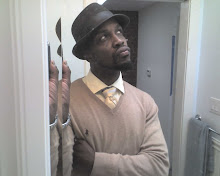
Neediest Cases
Finding Faith, and Responsibility, After Making a New Start
Michelle V. Agins/The New York Times
At the time, Mr. McKinney was running away from a life he had built and lost in Texas. His first marriage had failed, and after a brief period of homelessness, he had returned to Brooklyn, where he was raised.
That Sunday, the simplicity and the practicality of the sermon at Bible Faith Tabernacle, a nondenominational church on St. John’s Place in Bedford-Stuyvesant, appealed to him.
“The teaching was something,” he said. “It taught about responsibility, it taught about stuff that you should learn when you’re growing up, but everybody doesn’t.”
He returned there, week after week, and soon learned that the church was looking for a maintenance man. In search of work, he took the job.
Today, Mr. McKinney, 40, is still responsible for the church’s maintenance. But over time, his role as a member of the congregation evolved. Now a deacon, he runs the church’s food pantry and is a sound technician during services.
He learned graphics design and created bulletins and fliers on the church’s computers. In a church office, called the “video suite,” he spends hours each week in front of television and computer screens producing videos of his pastor’s sermons, which are shown on local cable-access channels.
He also met his second wife among the congregation of 300, and in 2001, their daughter, Ájee, was born. His church has been the place “that really upheld me,” he said. “My mind wasn’t working properly and the church was the one thing that kept my sanity, gave me a sense of purpose, that it’s worth being around.”
The church remains Mr. McKinney’s haven. And perhaps out of gratitude, or maybe a sense of obligation, he said, he does not want to leave his maintenance job there even if his video-production skills may command a higher salary elsewhere.
But about two years ago, when problems developed between him and his wife and she moved out, he was left to support his daughter alone. His salary at the church was not enough to pay the bills. In addition to caring for Ájee, he was paying $500 a month in child support to his first wife in Texas to help care for their teenage daughter.
By last summer, he had fallen months behind on the rent for his apartment in Bedford-Stuyvesant, and KeySpan had turned off his gas. At first, he improvised by cooking meals in the microwave. But when he lost his electricity as well, he could not care for his daughter there.
He and Ájee moved into his mother’s apartment in Crown Heights for several days. He tried not to let on to his daughter how serious their financial situation had become.
“I told her there was a problem with the lights and that I was going to take care of it,” he said. “I told her to kind of keep it quiet; don’t tell everybody the lights are out.”
Meanwhile, Mr. McKinney found odd jobs and freelance graphics and video work. With help from public assistance, he restored his electricity within a week and took his daughter back home.
For help with his gas bill, he turned to Catholic Charities, Diocese of Brooklyn and Queens, one of the seven agencies supported by The New York Times Neediest Cases Fund. A caseworker there negotiated with KeySpan to waive the late charges he had accrued and restore his gas service for $199.53, using money provided by Neediest Cases.
Public assistance grants helped him pay the rent and narrowly avoid eviction. Now, he is living paycheck to paycheck, he said, but he and Ájee have the necessities.
“A year ago, I was working on having a place to stay. That was the immediate goal, the long term, the short term,” he said. But now, he added, he is thinking about goals for 5 and 10 years ahead.
“It’s not a good thing when you get to, like, 40 years old, and you realize it’s not a game,” he said. “I think that that happens to people, and it happened to me.”
Mr. McKinney said he knew he must increase his income and begin a savings plan. Those were demands his wife had made as well. In November, having talked through some of their problems, his wife agreed to move back in with him. Since then, they have been meeting with their bishop for counseling.
“I love my wife, and I love my daughter,” Mr. McKinney said. “I want to see the American dream, the picket fence.”
More Articles in New York Region »


No comments:
Post a Comment